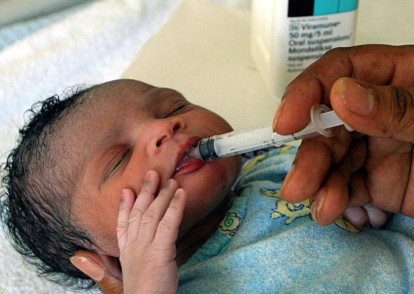
London: More than a million babies around the world die on the day of their birth yearly and a million more are stillborn, according to Save the Children, which argues that most of these deaths are preventable.
Although great strides have been made in reducing the numbers of children dying under the age of five in the past decade numbers have halved from 12 million to 6.6 million, there has not been enough progress in reducing the preventable deaths of newborn babies, says the charity.
Most of the deaths occur in developing countries. Some lives could be saved by simple interventions such as handwashing to prevent infections and “kangaroo care”, where mothers “incubate” their premature babies by keeping them warm through skin to skin contact.
The charity says there needs to be an increase in the number of women delivering with the help of a trained midwife or health worker, as 1.2 million deaths occur during labour. In cases of obstructed labour, mother and baby are likely to die without a caesarean section.
Save points to the global shortage of health workers who have the skills to help. It is estimated that 7.2 million more midwives, nurses and doctors are needed.
Every year, 46 million women give birth without the assistance of a professionally qualified person, says its report, Ending Newborn Deaths. In sub-Saharan Africa, half of all births are not attended by a midwife or other properly qualified health worker; in Ethiopia, that drops to just 10 per cent. But there are stark inequalities within countries; — in the richest fifth of households in Ethiopia, there are health professionals at 46 per cent of births, compared with two per cent among the least well-off. Justin Forsyth, the chief executive of Save the Children, said: “The first day of a child’s life is the most dangerous and too many mothers give birth alone on the floor of their home or in the bush without any life-saving help. We hear horror stories of mothers walking for hours during labour to find trained help, all too often ending in tragedy.
“It’s criminal that many of these deaths could be averted simply if there was someone on hand to make sure the birth took place safely and who knew what to do in a crisis.”
In countries such as the Democratic Republic of the Congo and the Central African Republic, women have to pay for emergency care — usually a caesarean — and there have been reports of some women being detained at the hospital until their families find the money.
Save the Children says the Millennium Development Goal to reduce child deaths by two-thirds by 2015 will not be met unless childbirth is made safer. By 2025, the charity says, every birth should be attended by a trained and equipped health worker and user fees for all maternal, newborn and child health services should be removed.












